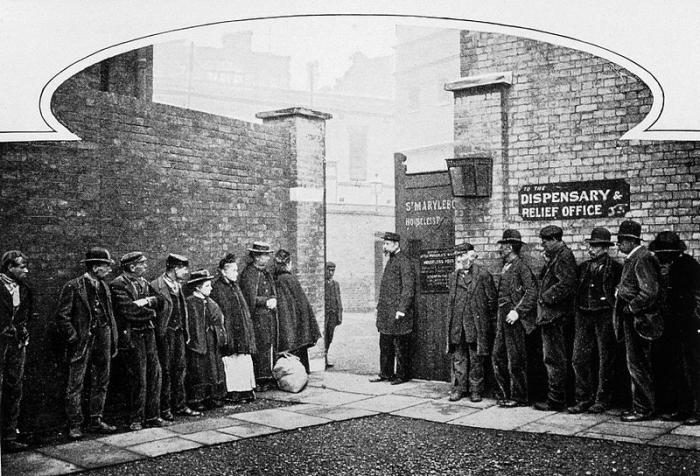When Big Brother Pays Your Benefits
Rising concerns around austerity, transparency, efficiency and financial management have fed into a narrative of technology as a magic cure-all to socio-economic and political issues.
Almost all of us will, at some point in our lives, interact with the state to ask for some form of benefit. Whether you are a child relying on the assistance of child services, or you're sick and need healthcare, or you receive unemployment benefits, or you're disabled and need support, or you need financial assistance to pay rent, or you're retired and receive a pension.
Rising concerns around austerity, transparency, efficiency and financial management have fed into a narrative of technology as a magic cure-all to socio-economic and political issues. Newly established or reformed social protection programmes have gradually become founded and reliant on the collection and processing of vast amounts of personal data; often access and management is tied to the provision of unique identifier; and increasingly the models for decision-making include data exploitation and components of automated-decision making and profiling.
What is the problem?
The current and emerging process to access these public benefits is currently designed and managed in a way that it comes at the cost of our privacy, dignity and autonomy.
From the stage of eligibility and registration to access benefits, recipients need to turn over vast amounts of personal data - about their employment, their health conditions, their relationship status - on the basis of which a decision is made as to their worthiness to receive benefits.
Once deemed eligible recipients need to maintain their eligibility, which involves being subject to various forms of monitoring and surveillance by the state and facilitated by the private sector. For example, people may be required to undergo drug test, psychological and physical assessments, face unannounced home visits, and account for decisions to purchase particular food or goods. This time-consuming process is too often counterproductive: it strips people of their privacy and dignity and exposes them to heightened scrutiny that impairs their abilities to seek and engage in work, advance their training and education, or care for their families.
The lack of integration of privacy, data protection, and security within this sector means that individuals are currently having to accept a trade-off between accessing social protection programmes and their fundamental rights to privacy and non-discrimination, amongst others.
Little or no measures are taken to ensure third-parties, such as the companies that develop these programmes, are not undermining the rights of individuals. There are also concerns with how private actors reconcile these sorts of initiatives with their commercial interests.
What is the solution?
Privacy, security and data protection safeguards must be considered from the onset, when deciding if a new social protection programme is necessary, through the whole decision-making process from design, implementation to maintenance.
Governments need to assess and take into consideration the specific needs of communities requesting benefits, particular people and communities who are already in a disadvantaged position because of their economic, social, class, or legal status, amongst others. Their right to privacy and data protection should be respected while implementing new and existing welfare programmes, in order to ensure that those in most need do not have to trade their right to privacy for receiving social rights.
The collection and processing of personal data as part of social benefits programmes must be strictly necessary and proportionate to make a fair assessment as to whether a person is elegible and then maintain access to welfare support.
The security and the integrity of data and systems must be considered from the outset. Appropriate measures must be in place to ensure that the infrastructures supporting social protection programmes are secure by design and by default to prevent unlawful access, and misuse by unauthorised third-parties.
There needs to be effective oversight of how welfare programmes operate and are functioning in place to ensure that particular groups of people are not disproportionately affected, and where violations do occur they are effectively investigated and sanctioned.
What PI is doing
We are supporting the work of our partner organisations in various countries to produce research documenting the impact of the surveillance of benefits claimants with a gender lens.
PI aims to connect with leading national and international organisations working on social justice and fair access to public services to identify opportunities for collaboration and joint action and promote the development of a privacy lens to the work conducted on welfare.
PI is working to expose and document the suppliers of tech solutions in state-run social protection programmes in order to shed light on the dual nature of the surveillance of benefits claimants, one where the private sector promotes the development of data-intensive welfare programmes for their own ends.
We are working with the Special Rapporteur on Extreme Poverty to highlight the importance of the right to privacy and the impact of data exploitation on the delivery of social services across the world.
PI will be alerting the donor community and other drivers of data intensive welfare programmes to ensure that the dignity, and rights of individuals, especially those most marginalised, are protected in the programmes they fund and encourage, particularly in countries where these are being developed as part of development and aid projects.



